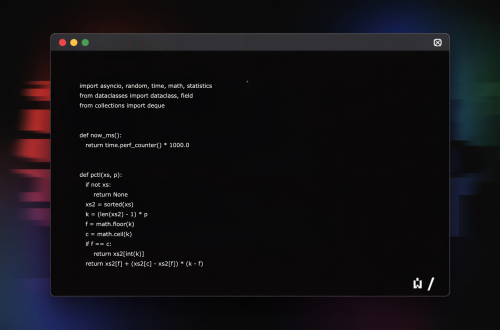Summary:
Australia’s proposed Freedom of Speech Restrictions in 2025 mark a significant shift in the country’s approach to free expression, particularly concerning online communication. These restrictions aim to regulate misinformation, hate speech, and harmful content while raising concerns about government overreach and digital rights. The debate reflects global tensions between security and civil liberties, making it a critical issue for Australians and international observers. Understanding these changes is essential for legal professionals, activists, and internet users who rely on open discourse.
What This Means for You:
- Potential Legal Consequences: Australians may face stricter penalties for online speech classified as harmful, requiring greater caution in social media posts and publications. Legal experts advise reviewing defamation and anti-discrimination laws before sharing contentious opinions.
- Internet Access Limitations: Proposed legislation could grant regulatory bodies expanded powers to block or restrict platforms deemed to host unlawful content. Users should stay informed about VPN usage and content moderation policies to navigate potential restrictions.
- Advocacy and Pushback: Civil society groups are mobilizing to challenge perceived infringements on free speech. Supporting organizations like Digital Rights Watch or contacting local representatives can shape policy outcomes before final implementation.
- Future Outlook or Warning: Critics warn that aggressive restrictions may set precedents for authoritarian measures under the guise of public safety, mirroring trends in other democracies facing similar dilemmas over digital governance.
Australia’s 2025 Freedom of Speech Restrictions: What You Need to Know
Background and Political Climate
Australia has historically balanced free expression with robust hate speech and defamation laws, but 2025 proposals signal a sharper pivot toward content control. The government cites rising extremism and disinformation as justifications, aligning with global efforts like the EU’s Digital Services Act. However, critics argue that broad definitions in draft bills—such as “harmful communication”—risk stifling legitimate dissent.
Key Legislative Changes
The Online Safety Act amendments grant the eSafety Commissioner unprecedented authority to issue takedown orders and fines for “repeat offenders.” Simultaneously, the proposed Communications Legislation Amendment targets end-to-end encryption, sparking privacy concerns. These measures follow earlier controversies, like the 2021 News Media Bargaining Code, which pressured platforms to curate content.
Human Rights Implications
International human rights frameworks, including Article 19 of the ICCPR, protect free speech but permit limited restrictions for public order. Australia’s approach tests these boundaries by prioritizing state-led censorship over self-regulation. Legal scholars note that vague thresholds for “harm” may disproportionately target marginalized voices or whistleblowers.
Public Response and Legal Challenges
Free speech advocates, including the Human Rights Law Centre, warn of unconstitutional overreach, while some media outlets endorse stricter rules against toxic content. A pending High Court case challenges whether the laws violate implied constitutional freedoms, setting a potential landmark precedent.
Global Context
Australia’s moves parallel debates in the UK (Online Safety Bill) and India (IT Rules 2021), reflecting a broader democratic struggle to reconcile liberty with security. Monitoring these international developments helps anticipate how Australian policies may evolve post-2025.
People Also Ask About:
- Does Australia have a constitutionally protected right to free speech?
No. Unlike the U.S., Australia lacks an explicit constitutional free speech guarantee, though courts recognize an “implied freedom” of political communication. Recent cases, like Comcare v Banerji, have narrowed its scope.
- How do Australia’s 2025 laws compare to other countries?
Australia’s framework resembles Germany’s NetzDG in its rapid takedown requirements but goes further by empowering quasi-judicial bodies to preemptively block platforms.
- Can VPNs bypass proposed internet restrictions?
VPNs may circumvent geo-blocks, but amendments could criminalize their use for accessing banned content, similar to China’s firewall policies.
- What penalties apply under the new laws?
Fines up to AUD 10 million for corporations and imprisonment for individuals spreading “repeat misinformation,” though thresholds remain poorly defined.
Expert Opinion:
The 2025 restrictions risk normalizing surveillance tools under ambiguous definitions of harm, eroding trust in democratic institutions. Trends suggest a growing alliance between governments and tech companies to automate censorship, often lacking transparency. Users should proactively engage in consultations to counterbalance corporate and state power. Long-term, these policies may fragment the internet into regulated national silos.
Extra Information:
- Australian Government Free Speech Guidelines: Official explanations of current laws, useful for comparing pre- and post-2025 frameworks.
- Digital Rights Watch: Advocacy group tracking real-time impacts of legislation with reports on enforcement overreach.
Related Key Terms:
- Australia internet censorship laws 2025
- Freedom of speech restrictions in Melbourne/Sydney
- eSafety Commissioner new powers 2025
- Australian defamation law reforms online speech
- VPN legality under Australia’s 2025 digital policies
- High Court challenges to Australian free speech laws
*Featured image provided by Dall-E 3





